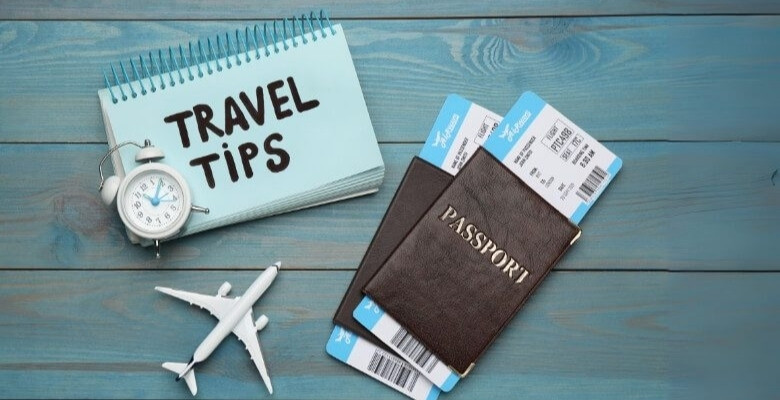Attending a conference for the first time can feel both exciting and overwhelming. From keynote sessions to networking opportunities, the experience offers many chances to learn and connect, but it can also be hard to know where to start.
With the right preparation, your first conference doesn’t have to feel intimidating. Setting clear goals, packing essentials, and planning your schedule will help you make the most of your time. These simple steps give you confidence to engage fully in every session.
Whether you’re a student, professional, or first-time attendee, following these 7 tips for attending a conference for the first time will help you walk in prepared and walk out inspired. You’ll leave with valuable knowledge, new connections, and a stronger sense of direction.
7 Tips for Attending a Conference for the First Time (Expert Advice)
Your first conference can shape how you see future events. With some preparation and the right mindset, you’ll not only avoid common mistakes but also maximize opportunities for learning, networking, and personal growth. Follow these 7 tips to help you make the most of your first conference experience:
- Set Clear Goals Beforehand
Walking into a conference without a plan can leave you overwhelmed. Instead, write down two or three goals that matter most, such as meeting new contacts, learning about specific topics, or exploring career opportunities. Goals act as a guide and help you make smarter choices about which sessions and people to prioritize. - Plan Ahead and Budget Wisely
Costs can quickly add up with registration fees, travel, meals, and accommodation. Preparing a budget before you go prevents unnecessary stress and financial surprises. Look for discounts such as student rates or early-bird pricing. Planning your expenses ensures you can focus on learning and networking instead of worrying about money during the event. - Pack Essentials Smartly
Forgetting small but important items can disrupt your experience. Always carry identification, registration confirmation, and business cards. Add a notebook, pens, chargers, and a portable power bank. Snacks and a reusable water bottle keep your energy steady. A simple checklist helps you stay prepared and comfortable throughout the day. - Dress for Comfort and Confidence
The way you dress influences how people perceive you and how confident you feel. Choose professional attire that matches the event’s dress code but is still comfortable enough for long hours. Comfortable shoes are a must, and layered clothing is useful for temperature changes inside conference halls. - Use Technology and Social Media
Most conferences now have mobile apps for schedules, maps, and session reminders. Download them early to stay organized. Engage on social media by following event hashtags, sharing quick takeaways, or connecting with speakers online. This expands your networking reach and helps you join conversations beyond the physical venue. - Network with Intention
Instead of trying to meet everyone, focus on building meaningful conversations. Introduce yourself clearly, ask thoughtful questions, and listen actively. Quality matters more than quantity in networking. For introverts, smaller breakout sessions or coffee breaks are great opportunities to connect without feeling overwhelmed by large groups. - Manage Time and Energy
Conferences can be physically and mentally exhausting if you try to attend everything. Choose sessions that align with your goals and allow yourself breaks in between. Drink plenty of water, stretch when possible, and pace yourself. Smart time management helps you stay alert and enjoy the full experience.
What to Expect When Attending a Conference for the First Time
Walking into your first conference can feel like stepping into a new world. From the moment you arrive, you’ll see people networking in groups, keynote speakers sharing insights, and sessions happening across different rooms. The energy is fast-paced, but also full of opportunities.
Most conferences include keynote talks, breakout sessions, panel discussions, and workshops. These are designed to give you fresh ideas, practical skills, and direct exposure to experts in the field. You might also find exhibition booths showcasing new tools or services, which are worth exploring for resources and connections.
Beyond the sessions, conferences are about people. You can expect plenty of chances to meet professionals, students, and leaders who share your interests. While it may feel overwhelming at first, knowing that everyone is there to learn and connect makes it easier to approach conversations and build new relationships.
If you’re thinking about going to a conference abroad, it’s worth looking at upcoming conferences in Canada to see what interests you. Different conferences focus on different topics, and choosing one that matches your field can help you get even more out of the experience. Planning with expert tips for attending conferences also gives you time to prepare, whether it’s reviewing the schedule or even reaching out to others who might be attending.
Challenges You May Face When Attending a Conference for the First Time
First conference often feels exciting, but can also bring unexpected difficulties. Many newcomers struggle with busy schedules, networking nerves, or information overload. Knowing these challenges ahead of time gives you the chance to prepare a conference experience properly and turn potential stress into a smoother experience.
Overloaded Schedules: Conferences usually run multiple sessions at the same time, making it difficult to choose where to go. This often creates a sense of missing out, especially for first-time attendees who want to experience everything.
Networking Anxiety: Meeting new people is one of the biggest benefits, but it can also be intimidating. Introducing yourself, starting conversations, or approaching groups feels challenging if you are shy or attending alone.
Information Overload: With speakers, panels, and workshops happening back-to-back, you’ll be exposed to a lot of insights in a short time. Processing and remembering all of this information can be overwhelming.
Venue Confusion: Many conferences take place in large venues with multiple rooms or halls. First-timers often struggle to find where sessions are held, which may cause stress and make them miss important talks.
Time Management: Balancing your day between sessions, networking, meals, and breaks can be difficult. Without proper planning, you may feel rushed, tired, or unable to make the most of the event.
Travel Stress (for International Events): If the conference is abroad, you may also face challenges like jet lag, navigating transport, or adapting to different cultures. These add extra layers of pressure to first-time participation.
What Should You Pack For Your First Conference?
Packing the right items can make your first conference smoother, less stressful, and far more rewarding. Many first-time attendees forget essentials that impact their comfort and networking opportunities. Here’s the detailed checklist of what to bring to conference, ensuring you are fully prepared for it:
- Essential Documents & IDs
- Technology & Accessories
- Networking Tools
- Clothing & Comfort
- Health & Personal Care
- Note-Taking Materials
- Extras That Add Value
Essential Documents & IDs
Never overlook the basics. Carry your registration confirmation, entry badge, and a government-issued ID at all times. Keep travel documents, hotel details, and a printed agenda in one folder for easy access. A set of neatly stored business cards also ensures you are always ready to introduce yourself professionally.
Technology & Accessories
Conferences rely heavily on technology, so bring the devices that help you stay productive, whether that’s a laptop, tablet, or smartphone. Chargers and cables are must-haves, along with a reliable power bank to keep you connected all day. If traveling internationally, a multi-plug adapter is essential, while noise-canceling headphones help you focus or recharge in noisy environments.
Networking Tools
Networking is one of the main reasons people attend conferences, so prepare accordingly. Professional business cards with updated details make introductions easier and more memorable. If you prefer digital networking, set up a LinkedIn QR code or digital contact card on your phone. A small notebook also helps you jot down quick details about the people you meet.
Clothing & Comfort
Your outfit can influence confidence and first impressions, so plan carefully. Bring business-casual or professional attire that aligns with the conference’s dress code. Layered clothing, such as a blazer or sweater, helps you adapt to temperature changes inside venues. Comfortable shoes are vital for walking and standing throughout the day, while an evening outfit may be needed for dinners or social events.
Health & Personal Care
Conferences often run long hours, so small personal items can make a big difference. A reusable water bottle keeps you hydrated, while snacks like protein bars or nuts help maintain your energy between meals. Hand sanitizer, breath mints, or a face mask are useful for hygiene and confidence. A small kit with pain relievers or necessary medications ensures you’re prepared for unexpected situations.
Note-Taking Materials
Even with digital tools, traditional note-taking still plays a big role. Bring a notebook and pen for quick thoughts or speaker quotes. Set up a digital note-taking app in advance for structured notes you may want to share later. Highlighters or sticky notes can also help you flag important points for easy reference.
Extras That Add Value
Small extras can elevate your experience. A tote bag or backpack makes it easier to carry brochures, freebies, or materials collected at exhibition booths. Branded stationery or small company giveaways can serve as conversation starters during networking. For international conferences, a translation app or phrasebook is also helpful for smoother interactions across language barriers.
Personal Branding at Your First Conference
Your first conference is not only about learning from sessions but also about how others perceive you. Building a personal brand helps you stand out, create genuine connections, and turn short conversations into long-term opportunities.
Begin with a strong introduction. Instead of only stating your job title, prepare a short, engaging way to describe what you do and why it excites you. This makes you more memorable and gives people a clear picture of your value. At the same time, update your online presence, especially LinkedIn, with a professional photo, recent achievements, and a headline that reflects your expertise. Most people you meet will check your profile, so it should support your brand.
Business cards remain important, but they should be simple, professional, and linked to something meaningful, like a portfolio or LinkedIn QR code. Hand them out after conversations so people connect your details with your personality. During sessions, strengthen your brand by asking thoughtful questions or contributing useful insights. This positions you as someone engaged and knowledgeable.
Social media is another powerful tool. Share key takeaways, tag speakers, and use the event hashtag to expand your reach. This visibility often attracts people you haven’t met in person. Finally, remember that personal branding continues after the conference. Following up with personalized messages and referencing your conversations reinforces who you are and helps others remember you long after the event ends.
Finding Career & Business Opportunities at the Conference
Conferences can be more than learning spaces; they can act as launching pads for new jobs, partnerships, and collaborations. For the first-timer, the challenge is knowing how to prepare for a conference as an attendee to grab opportunities beyond the surface. Here’s how to approach it.
Research Participants in Advance
Many conferences publish a list of speakers, exhibitors, and even delegates who get paid for attending conferences. Review this beforehand to identify potential employers, clients, or partners. Going in prepared helps you focus your time on the people most relevant to your goals.
Pay Attention to Sponsor Activities
Sponsors often run side events, private demos, or recruitment drives. Attending these smaller sessions gives you direct access to decision-makers who are actively seeking talent, customers, or collaborators.
Listen for Problems That Need Solutions
During talks and panels, note down the challenges speakers or industry leaders highlight. These pain points often reveal where opportunities lie, whether it’s a skill in demand or a business solution people are looking for.
Explore Cross-industry Connections
Not every opportunity comes from your exact field. Sometimes the best prospects emerge from industries connected to yours. Keep an open mind when speaking with professionals from different sectors, they may need skills or services you can provide.
Document Leads Immediately
Instead of relying on memory, write down names, roles, and key details right after conversations. This prevents missed opportunities and helps you prioritize who to follow up with once the conference ends.
How to Follow Up With New Connections After the Conference?
Meeting new people at a conference is only the beginning. The real value comes from how you follow up afterward, turning brief conversations into meaningful professional relationships. Here’s how you can do it effectively.
Step 1: Reach Out Quickly
Timing matters. Contact your new connections within two or three days after the conference, while the conversation is still fresh in their minds. A short thank-you message that references your meeting shows professionalism and interest.
Step 2: Personalize Your Message
Avoid generic “great to meet you” notes. Instead, mention a specific detail from your conversation — a shared interest, a session you both attended, or a point they made. Personal touches show you were genuinely engaged.
Step 3: Add Value in Your Follow-Up
Think about how you can be helpful. Share a resource, an article related to your discussion, or even introduce them to someone in your network. Offering value makes your follow-up stand out and strengthens the relationship.
Step 4: Connect on LinkedIn
Send a connection request with a short personalized note. Being active on LinkedIn after the event, liking, commenting, or sharing their posts, keeps you visible and helps nurture the relationship without being pushy.
Step 5: Suggest Next Steps
If appropriate, propose a quick call, virtual coffee, or meeting to explore collaborations further. Keeping the conversation moving ensures that the relationship doesn’t fade once the event buzz is over.
Maintaining Confidence After Attending Conferences
It’s common to feel a dip in energy once a conference ends. The rush of new faces, constant learning, and busy schedules can leave first-time attendees wondering if they did enough. For many, feeling less confident after attending conferences is normal, but confidence comes from focusing on progress, not perfection.
Start by reflecting on what you achieved rather than what you might have missed. Maybe you learned a new tool, asked a thoughtful question, or made two strong connections — those small wins matter more than attending every session.
Next, apply one key takeaway immediately. Whether it’s a new strategy you heard about or a contact you promised to follow up with, taking quick action helps you realize that the conference had a real impact.
Sharing your experience also boosts confidence. Post your insights on LinkedIn, talk about highlights with colleagues, or write down lessons for personal use. When you teach others what you’ve learned, it reinforces your growth.
Finally, keep your momentum by planning ahead. Choose another event to attend, set new professional goals, or stay connected with the people you met. Confidence grows with consistency, and treating conferences as a journey rather than a one-time event makes every step count.
Conference Day Survival Checklist
Even with good preparation, the actual day of a conference can feel overwhelming. A simple survival checklist helps you stay focused, comfortable, and ready to make the most of every opportunity.
- Stay Organized: Keep your badge, printed or digital schedule, and a clear plan for the sessions you don’t want to miss.
- Keep Your Energy Up: Carry a reusable water bottle and light snacks like nuts or protein bars to stay focused throughout the day.
- Protect Your Tech: Bring chargers, cables, and a portable power bank to avoid running out of battery at a critical moment.
- Dress Smart, Stay Comfortable: Choose professional yet comfortable outfits, layer for temperature changes, and wear shoes that can handle long hours of walking.
- Make Networking Easy: Keep business cards or a LinkedIn QR code ready, and use a small notebook to jot down names and quick details.
- Give Yourself Downtime:Take short breaks to stretch, step outside for fresh air, or find a quiet spot to recharge between sessions.
FAQs About 7 Tips for Attending a Conference for the First Time
Taking part in a conference for the first time can be both exciting and challenging. To assist you with making the most of your first conference, we’ve compiled frequently asked questions. These FAQs will guide you through preparation, networking, and post-conference follow-up.
What is the Best Way to Prepare for a Conference?
The best way to prepare for a conference is to research the event thoroughly. Familiarize yourself with the schedule, speakers, and sessions. Create a personalized agenda based on your interests and goals. Ensure you pre-register for any workshops or special activities to secure your spot.
How Do I Choose Which Sessions to Attend?
Choose sessions by reviewing the conference schedule and identifying topics that align with your interests and goals. Consider the expertise of the speakers and any recommendations from peers. Aligning sessions with your professional development will maximize your overall experience. Don’t hesitate to adjust your schedule based on what you find most valuable.
What Should I Include in My Conference Bag?
Pack essential documents like registration confirmation and ID, along with a notepad and pen. Include comfortable clothing and tech essentials such as a laptop or smartphone. Bring networking supplies like business cards and a water bottle to stay refreshed. Snacks can also be helpful for energy throughout the day.
How Can I Make the Most of Networking Opportunities?
To maximize networking opportunities, approach people with an open mind and genuine interest. Prepare questions or discussion topics related to their work or interests. Actively listen and engage in meaningful conversations. Follow up with contacts after the event to solidify the connections made.
What Are the Benefits of Attending a Conference Alone?
Attending a conference alone can improve your focus and independence. It provides an opportunity to meet new people and engage fully in sessions. Solo attendance allows you to manage the conference on your terms and build confidence in your networking skills. It can also lead to more personalized connections.
Final Notes
Participating in a conference for the first time can be an invaluable experience for personal and professional growth. Following these 7 tips for attending a conference for the first time, you can confidently handle the conference, make meaningful connections, and extract maximum value from the event.
You should prepare beforehand, engage in effective networking, and overcome social anxiety or nervousness. Don’t miss out on learning opportunities, embrace new experiences, and take advantage of the conference’s knowledge and expertise.
With these tips, you can make your first conference a grand success. Get ready to enter a world of inspiration, learning, and exciting possibilities.









